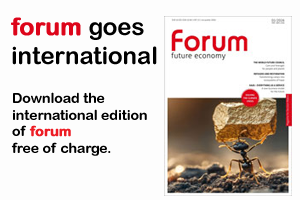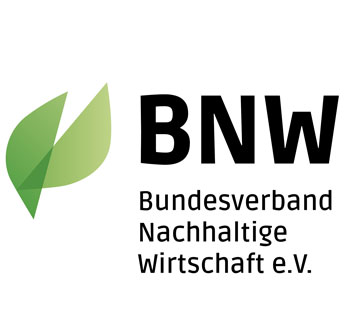Umwelt | Umweltschutz, 28.06.2018
Safe the Oceans. Stop recycling Plastic.
Recycling Plastic Is Making Ocean Litter Worse
An explosive report from the Global Warming Policy Foundation (GWPF) reveals that efforts to recycle plastic are a major cause of the marine litter problem.
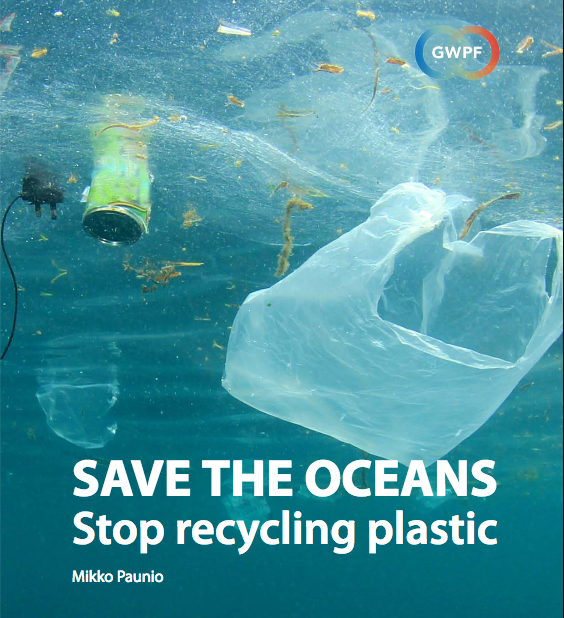 The report, written by public health expert Dr Mikko Paunio, sets out the case for incinerating waste rather than trying to recycle it.
The report, written by public health expert Dr Mikko Paunio, sets out the case for incinerating waste rather than trying to recycle it. - Most of the plastic waste comes from just a few countries, mostly in Asia and Africa.
- 25% is "leakage” from Asian waste management processes - the rest is waste that has never been collected, but is simply thrown into rivers.
- But European countries ship inject huge quantities of waste into Asian waste management streams, ostensibly for recycling. As much as 20% - millions of tons every year - ends up in the oceans and will continue to do so.
- Since the Chinese banned waste imports at the start of the year, shipments have been diverted to other Asian countries with even weaker environmental controls (Figure 1).
- EU recycling is therefore a major contributor to marine waste and increasing recycling will therefore simply increase marine litter.
Author Dr Mikko Paunio says:
"It is clear that the European contribution to marine waste is a result of our efforts to recycle. However, several countries have already shown that they can reduce this contribution to near zero, by simply incinerating waste”.
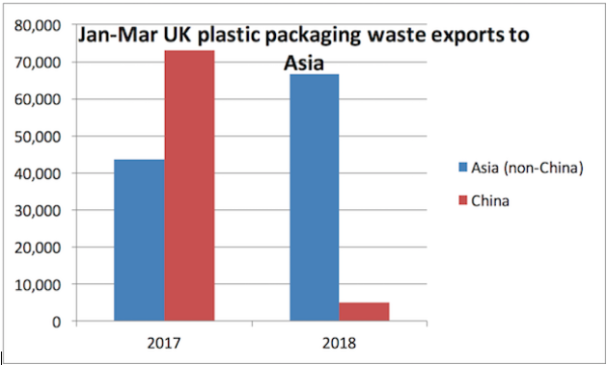
Despite this success, the EU is trying to redouble recycling efforts and to close down the incineration route, mistakenly believing that this will reduce carbon emissions. As Dr Paunio puts it,
"The effects look as though they will be appalling. We can expect a great deal more plastic to end up in the environment, and in the oceans in particular. If the EU was serious about its war against marine pollution it should consider banning the export of plastic recyclate rather than banning plastic straws or taxing incineration.”
You are free to download the full paper (pdf): Save the Oceans: Stop Recycling Plastic.
Contact: Professor Mikko Paunio mikko.paunio@outlook.com
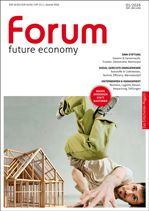
forum Nachhaltig Wirtschaften heißt jetzt forum future economy
forum 01/2026
- Zukunft bauen
- Frieden kultivieren
- Moor rockt!
Kaufen...
Abonnieren...
29
JAN
2026
JAN
2026
VSME (Voluntary Sustainability Reporting Standard for SME)
Gerade jetzt so viel mehr als nur ein ESG-Bericht
Online
Gerade jetzt so viel mehr als nur ein ESG-Bericht
Online
30
JAN
2026
JAN
2026
Perspektive Wohnungsbau in Augsburg und Bayern
Impulse, Herausforderungen und Lösungswege
86159 Augsburg
Impulse, Herausforderungen und Lösungswege
86159 Augsburg
10
FEB
2026
FEB
2026
Anzeige

Professionelle Klimabilanz, einfach selbst gemacht

Einfache Klimabilanzierung und glaubhafte Nachhaltigkeitskommunikation gemäß GHG-Protocol
Pioniere & Visionen
 Großzügigkeit und Wohlwollen
Großzügigkeit und WohlwollenChristoph Quarch wünscht sich einen Relaunch des Nikolaus-Festes
Jetzt auf forum:
Rat für Nachhaltige Entwicklung neu berufen
Sperrmüll vs. Entrümpelungsfirma: Wann lohnt sich professionelle Hilfe?
BAUExpo 2026 vom 20. bis 22. Februar in Gießen
CO2-Preis: Bundesregierung sollte zu Koalitionsvertrag stehen
PFAS-Regulierung in Frankreich für bestimmte Produktgruppen seit Januar in Kraft


